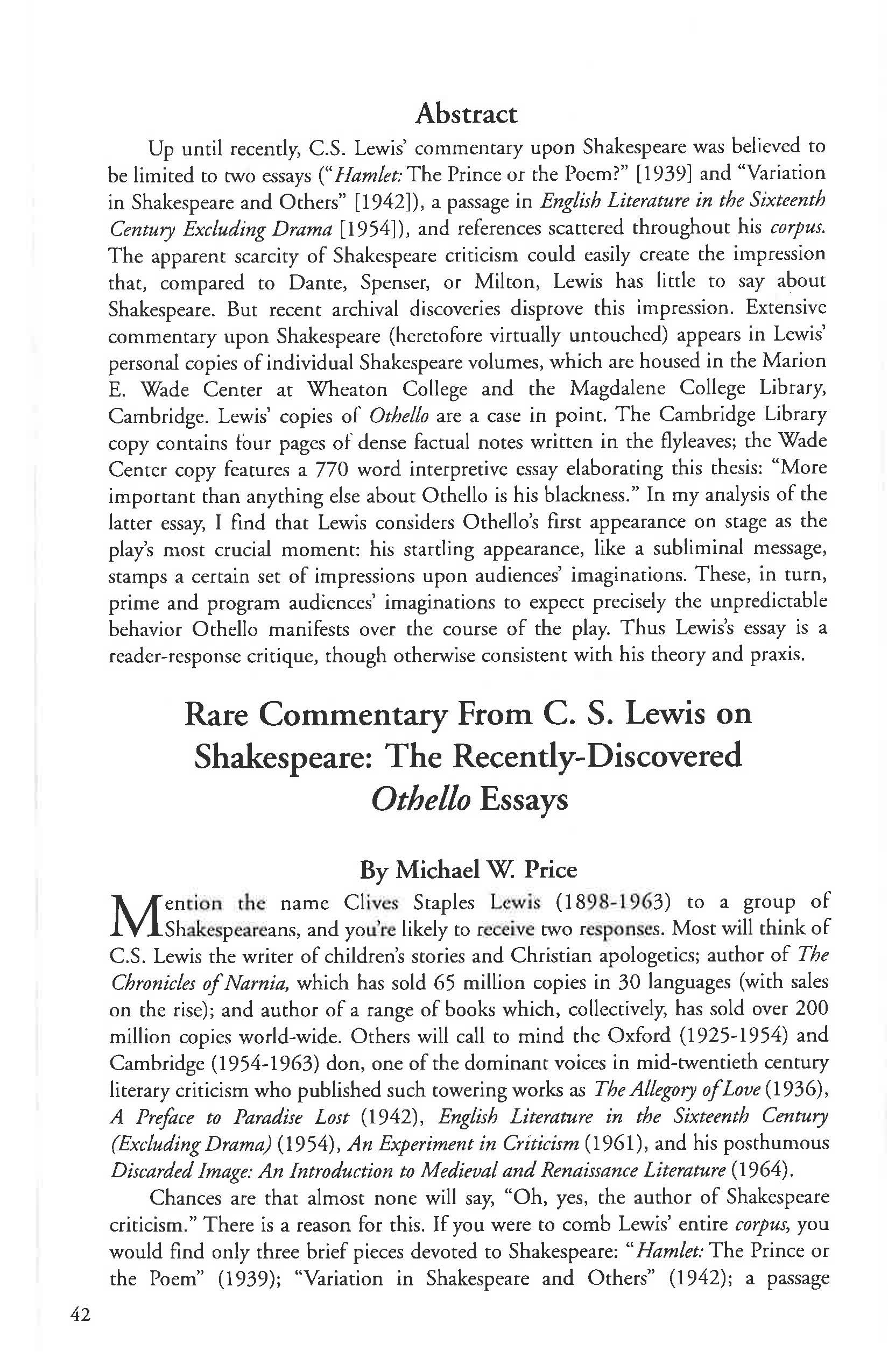Rare Commentary From C. S. Lewis on Shakespeare: The Recently-Discovered Othello Essays
Main Article Content
Abstract
Up until recently, C.S. Lewis' commentary upon Shakespeare was believed to be limited to two essays ("Hamlet:The Prince or the Poem?" [1939] and "Variation in Shakespeare and Others" [1942]), a passage in English Literature in the Sixteenth Century Excluding Drama [1954]), and references scattered throughout his corpus. The apparent scarcity of Shakespeare criticism could easily create the impression that, compared to Dante, Spenser, or Milton, Lewis has little to say about Shakespeare. But recent archival discoveries disprove this impression. Extensive commentary upon Shakespeare (heretofore virtually untouched) appears in Lewis' personal copies of individual Shakespeare volumes, which are housed in the Marion E. Wade Center at Wheaton College and the Magdalene College Library, Cambridge. Lewis' copies of Othello are a case in point. The Cambridge Library copy contains four pages of dense factual notes written in the flyleaves; the Wade Center copy features a 770 word interpretive essay elaborating this thesis: "More important than anything else about Othello is his blackness." In my analysis of the latter essay, I find that Lewis considers Othello's first appearance on stage as the play's most crucial moment: his startling appearance, like a subliminal message, stamps a certain set of impressions upon audiences' imaginations. These, in turn, prime and program audiences' imaginations to expect precisely the unpredictable behavior Othello manifests over the course of the play. Thus Lewis's essay is a reader-response critique, though otherwise consistent with his theory and praxis.
